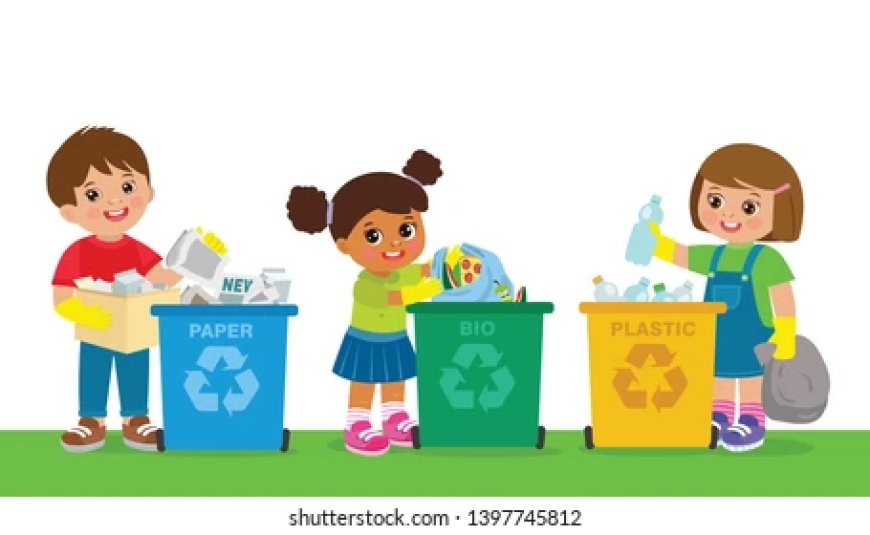Your Dustbin, Your Impact: How Proper Waste Disposal Shapes Our Future
Discover the vital reasons to always throw garbage in the dustbin. Learn how proper waste disposal protects public health, safeguards the environment, and promotes a cleaner community for everyone.

It's a message we hear from childhood, a seemingly basic rule of civics: "Throw your garbage in the dustbin." Yet, despite its simplicity, the sight of litter-strewn streets, overflowing drains, and polluted landscapes is a stark reminder that this fundamental principle is often overlooked. We might think a single wrapper or an empty bottle thrown carelessly won't make a difference, but collectively, these small acts of improper waste disposal lead to monumental problems.
This isn't just about keeping things tidy; it's about safeguarding our health, protecting our environment, preserving our resources, and fostering a sense of community responsibility. Let's delve into the critical reasons why every single piece of garbage truly belongs only in the dustbin.
1. Protecting Public Health and Hygiene
Perhaps the most immediate and tangible reason to use a dustbin is for public health. Garbage left exposed becomes a breeding ground for a plethora of harmful organisms:
-
Pest Infestations: Food waste and general refuse attract rodents (rats, mice) and insects (flies, cockroaches, mosquitoes). These pests are carriers of numerous diseases, including typhoid, cholera, dengue, malaria, and leptospirosis, posing severe threats to human health.
-
Spread of Diseases: Decomposing organic matter can release harmful bacteria and viruses into the air and water. Children, especially, are vulnerable to infections from playing in contaminated areas.
-
Foul Odors and Air Pollution: Rotting garbage emits noxious gases and creates unpleasant odors, leading to local air pollution that affects respiratory health and general well-being of residents.
-
Contamination of Water Sources: When garbage is dumped near rivers, lakes, or even on the ground where rain can wash it away, toxic chemicals and pathogens leach into water bodies. This contaminates drinking water sources, aquatic life, and the entire water cycle.
2. Safeguarding Our Environment
The environmental repercussions of improper waste disposal are devastating and long-lasting:
-
Soil and Water Pollution: Non-biodegradable waste, like plastics, remains in the environment for hundreds of years. As it breaks down into microplastics, it infiltrates soil and water, affecting plant growth, contaminating food chains, and harming aquatic life.
-
Damage to Ecosystems and Wildlife: Animals often mistake discarded plastic bags or bottles for food, leading to internal injuries, starvation, or entanglement. Birds, marine life, and land animals suffer immense harm from litter. Our beautiful natural landscapes – forests, beaches, mountains – are ruined by unsightly trash.
-
Blockage of Drainage Systems: Plastic bags, bottles, and other debris commonly clog drains and sewage systems, leading to waterlogging, flash floods (especially in urban areas like Dehradun during monsoon), and creating stagnant water bodies that become further breeding grounds for mosquitoes.
-
Increased Greenhouse Gas Emissions: When organic waste decomposes in landfills without proper management, it produces methane, a potent greenhouse gas that contributes significantly to climate change.
3. Promoting Resource Conservation and the Circular Economy
Proper waste disposal is the first step in a larger process of resource management:
-
Facilitating Recycling: When garbage is segregated and put into the correct bins (where facilities exist), it can be collected and sent for recycling. This allows valuable materials like plastics, glass, paper, and metals to be reused, reducing the need to extract virgin resources.
-
Supporting Composting: Organic waste, when separated, can be composted into nutrient-rich soil, reducing the amount of waste sent to landfills and providing a natural fertilizer for agriculture and gardens.
-
Energy Recovery: Some non-recyclable waste can be converted into energy through processes like waste-to-energy incineration, offering an alternative to fossil fuels.
4. Fostering Community Pride and Economic Benefits
A clean environment significantly impacts our quality of life and economic prosperity:
-
Enhanced Aesthetics and Tourism: Clean streets, parks, and public spaces are visually appealing. They create a positive impression for residents and attract tourists, boosting local economies. No one wants to visit a place covered in trash.
-
Property Value: Areas with effective waste management and cleanliness tend to have higher property values and attract more investment.
-
Reduced Costs: While waste management systems require investment, the costs of cleaning up litter, dealing with disease outbreaks, and repairing flood damage caused by blocked drains far outweigh the cost of proper disposal.
Conclusion
Throwing garbage in the dustbin is not just a polite gesture; it is a fundamental act of responsibility. It is a commitment to public health, a dedication to environmental preservation, and a contribution to the well-being and prosperity of our communities. Every individual's choice to properly dispose of waste, no matter how small, adds up to a monumental difference.
Let us all embrace this simple habit and encourage others to do the same. By consistently using dustbins, we don't just keep our surroundings clean; we actively participate in building a healthier, safer, and more sustainable future for ourselves, our children, and generations to come. Our planet, and our communities, depend on it.







